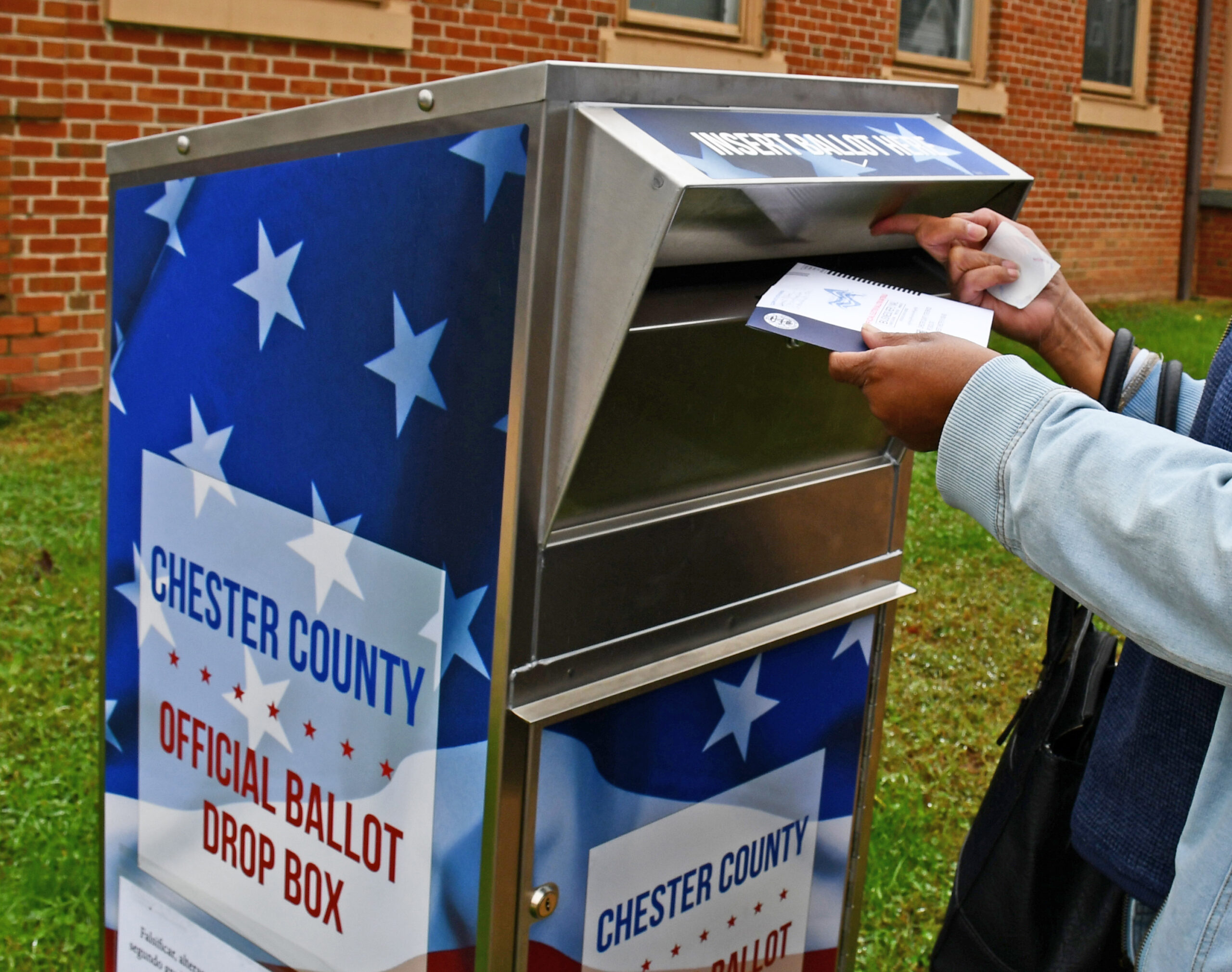How did an election-reform measure in Pennsylvania that was almost universally supported by Republicans become a rallying point for conservative protesters who believe the 2020 election was stolen?
The answer is, in part, Republicans’ dismay in the way the Democratic governor and the Democrat-controlled state Supreme Court enacted procedural changes, based on interpretations of the law, that appear to have favored Democrats in the last presidential race.
“Everybody thought this was a good idea — a great idea, in fact — until Trump spoke out against it,” Duquesne law professor Joe Mistick told PublicSource.
The state law known as Act 77, which enabled “no-excuse” mail-in voting, passed with overwhelming support from the GOP-controlled legislature and was signed by Democratic Gov. Tom Wolf on Oct. 31, 2019.
The Democrat-backed initiative was a compromise between both parties as each got something in return, although one political commentator compared the process to a Looney Tunes-inspired “rabbit season-duck season” standoff between lawmakers ending with Republicans on the wrong side of the barrel.
The mail-in expansion meant voters no longer required valid excuses, such as illness or out-of-state travel, to cast absentee ballots. And Republicans, at least initially, felt they won by eliminating straight-ticket voting, which tended to favor down-ballot Democrats because of the imbalance in the number of registered Democrats to Republicans in some areas, like Philadelphia and Pittsburgh.
That meant more voters could conceivably split their ticket by voting for one party in the presidential election and for another in state and local races.
Prominent state leaders touted the accomplishment at the time, with Republican state Senate Majority Leader Jake Corman, now a gubernatorial candidate, calling it “probably the most historic reform bill we’ve ever done, not only in my time but in decades.”
Those feelings quickly dissipated once President Donald Trump lost the 2020 election. He and his allies, including Missouri Sen. Josh Hawley, disputed Pennsylvania’s electoral process with unproven claims about mail-in voting and election results.
Hawley argued against the Electoral College certification of Biden’s victory, saying Pennsylvania hadn’t followed its own election laws – a common refrain among Republicans raising legal challenges over the Keystone State’s voting.
Corman, who was among the Republicans who voted for Act 77, now has buyer’s remorse. In a statement to the Delaware Valley Journal, he accused Wolf and former Secretary of State Kathy Boockvar of “giving illegal, last-second directions” to county officials about how to process mail-in ballots.
“Their behavior led two counties in one senatorial district to tabulate votes differently and change the outcome of an election,” he said. “That’s unAmerican and why I’m pushing forward with the legislature’s constitutional responsibility to review our elections. As governor, I will make sure something like this can never happen again. All Pennsylvanians must have confidence that their vote will be counted fairly and legally.”
Republicans continue to try to overturn Act 77, which survived a previous court challenge.
Over the summer, a pair of lawsuits were filed challenging the constitutionality of Act 77. Those cases were combined and are moving forward, The Philadelphia Inquirer reported.
Meanwhile, Republican state Sen. Doug Mastriano (R-Franklin) introduced a measure in November that seeks to repeal parts of the historic election-reform law via a referendum. If SB 884 is passed by the General Assembly, voters will decide whether to do away with “no-excuse” mail-in voting altogether.
The bill would also impose a deadline for mail-in ballots to be received by the Friday before Election Day, unlike the 2020 election when courts ruled ballots postmarked by Nov. 3 counted as long as they arrived within three days of Election Day. It would also mandate signature verification for all mailed ballots.
Attorney General Josh Shapiro, the lone Democrat running for governor, says passing SB 884 would be a complete repudiation of the votes of Republicans in the legislature. Act 77 had the support of all 27 Republicans, and passed 138-61 in the House, he noted.
A spokesman for Shapiro told DVJournal the law “helped millions of Pennsylvanians make their voices heard and led to the highest voter turnout in the last six decades. Attorney General Shapiro believes it is critical to make voting accessible to all eligible Pennsylvania voters, and as governor, he would veto any bill that eliminates or restricts mail-in voting.”
Mastriano’s bill attempts to quash that by making it impossible for the winner of the gubernatorial race to veto the bill, which awaits action from the state government committee, before it appears on the ballot in May 2023.
“As we witnessed in 2020, Act 77 in its current form is susceptible to unconstitutional changes that weaken its election security safeguards,” said Mastriano, citing a poll that found a third of Pennsylvania voters who cast ballots in the 2020 election “were not confident” in the results. “Significant doubt in the validity of one’s vote has serious repercussions for our republic. SB 884 will allow the people of Pennsylvania to have the final say on these important election security measures.”
Gubernatorial candidate Sen. Scott Martin (R-Lancaster) said in a statement that Republicans who voted for the bill didn’t expect “what came about” after Act 77 was signed into law.
“Gov. Wolf weaponized the State Department to pervert the law as passed, and a partisan Supreme Court allowed those perversions to stand,” he said. “I have voted for legislation to reverse the State Department’s misdeeds, implement Voter ID and the other things necessary to ensure the integrity of future elections. I support these changes and even a constitutional amendment if necessary to make sure bureaucratic misdeeds that do not follow the law can never happen again, whether we have an Act 77 or not.”
Follow us on social media: Twitter: @DV_Journal or Facebook.com/DelawareValleyJournal

